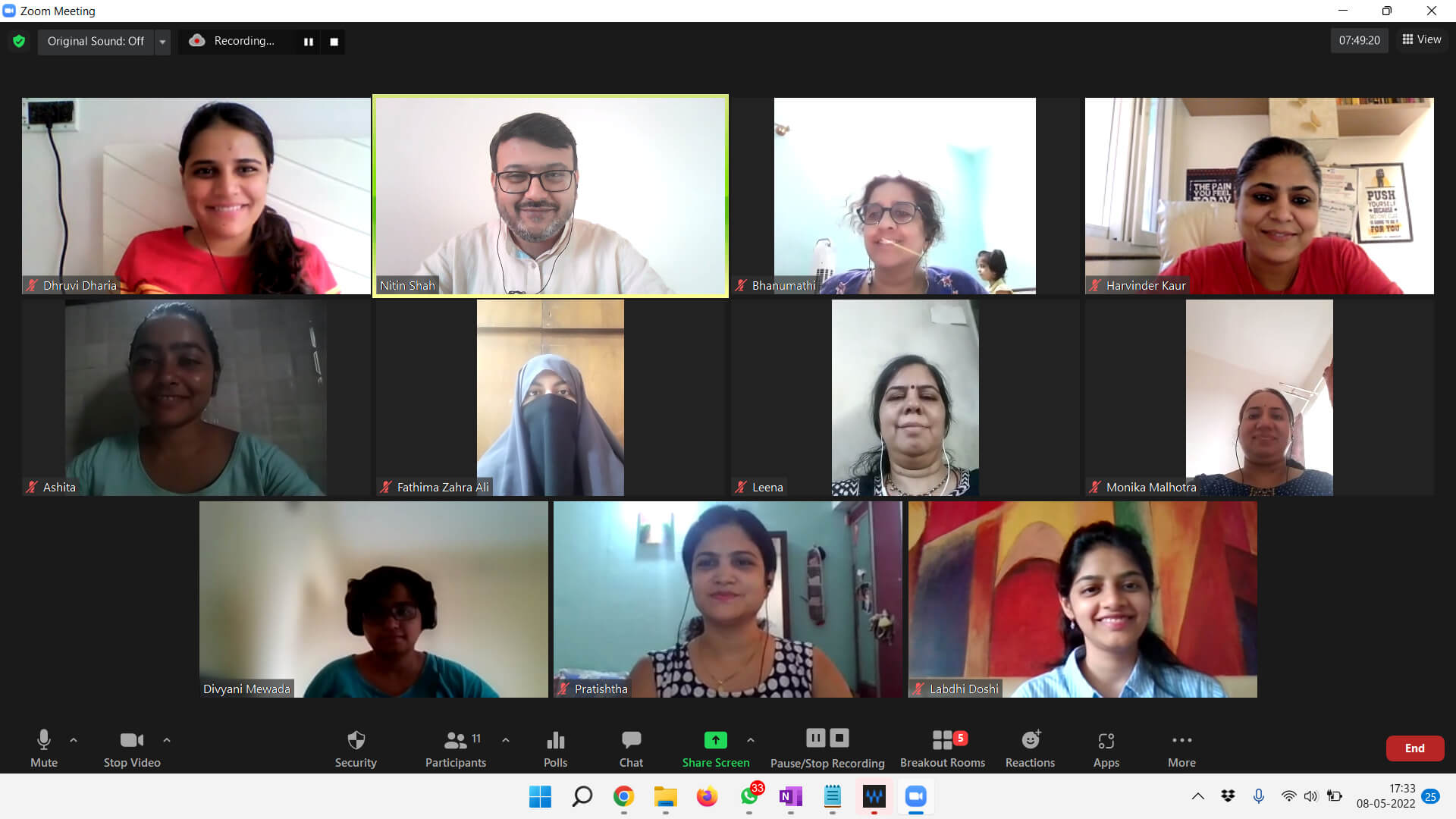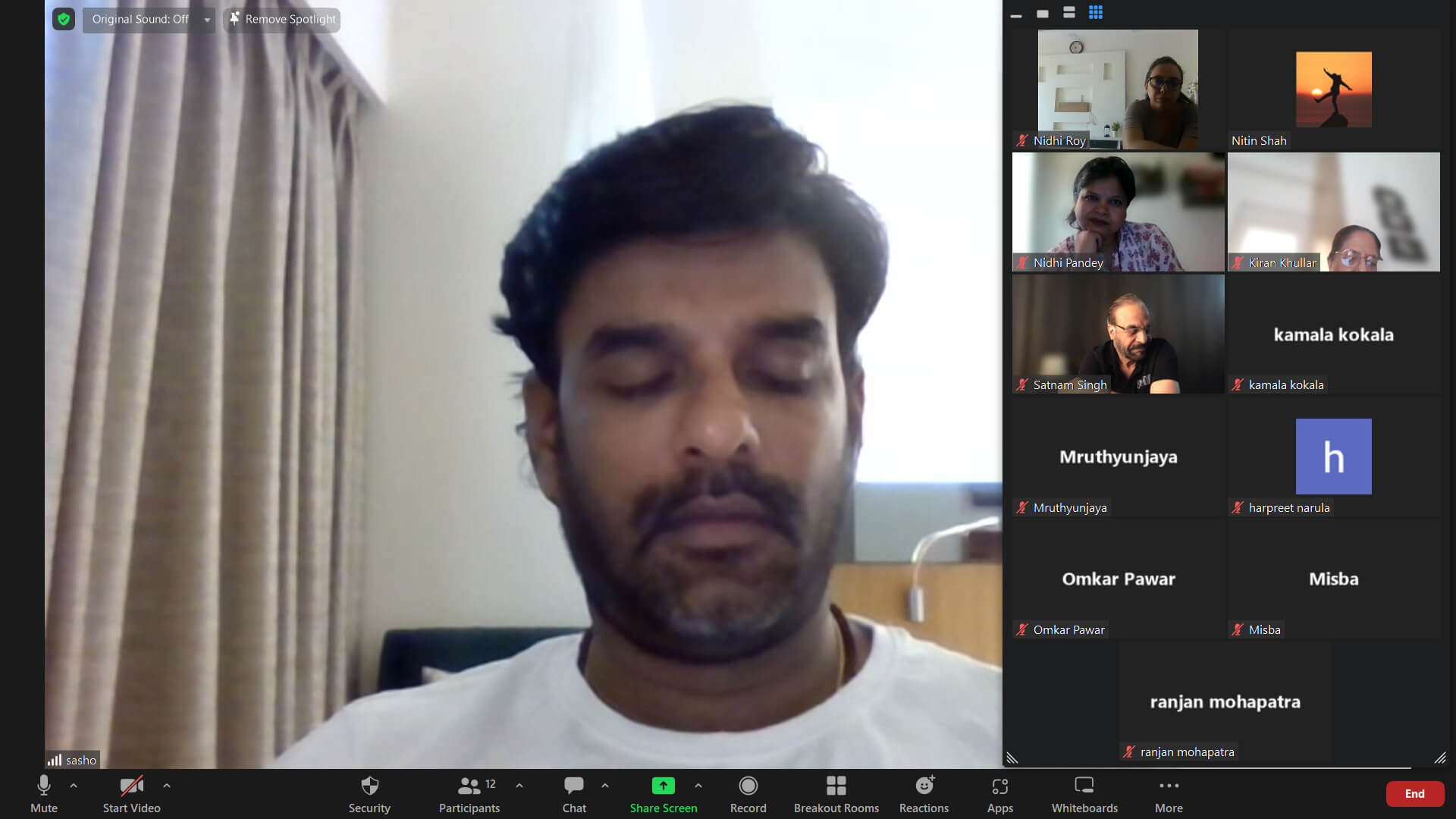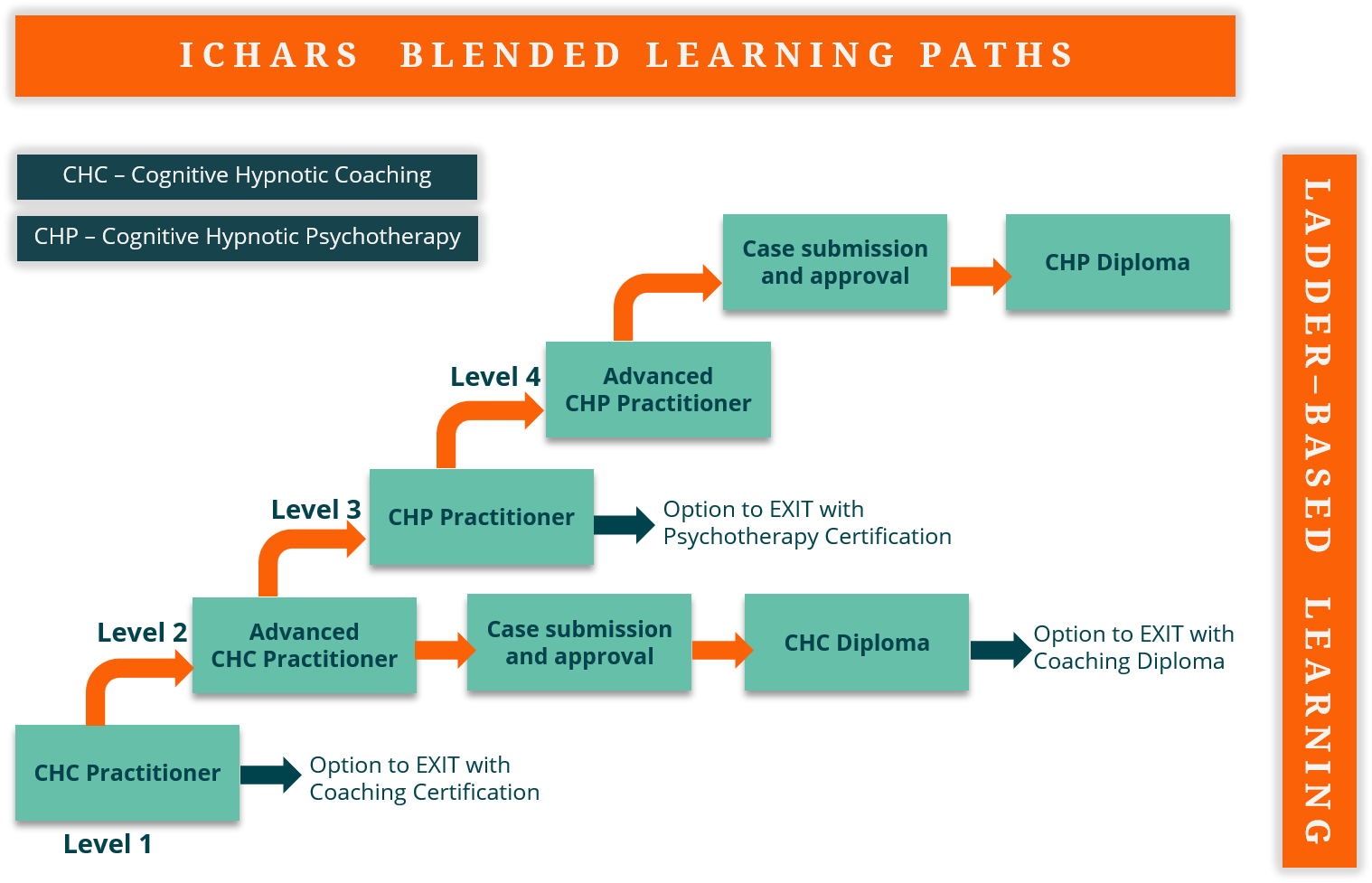We are the only institute that offers a 100% money back guarantee on live instructor led diploma program.
If you are not happy with the course after attending Level 1, let us know and we will refund the full amount.
Disclaimer: After attending the course everyone loves the same and hence no one has asked us for their Money back.

This Psychotherapy Diploma has been created for




The Cognitive Hypnotic Psychotherapy Diploma is not only about taking home a framework or developing skills but also about undergoing the same transformation yourself that you would later help your clients experience!
That would be wonderful, wouldn’t it?
One of the most exciting aspects of Cognitive Hypnotic Psychotherapy training is the breakthroughs you experience as an individual.
During the training itself, you extensively practice what you learn with your co-participants, working on real goals and issues that you may be facing. This takes you through a series of personal breakthroughs that culminate in a transformation.
As a result, you are able to design your own pathway to a financially and emotionally fulfilling career as a therapist and learn to manage your own mental state – your thoughts, emotions, beliefs and more.
Your personal growth during training and mentoring enables you to help your clients transform their own lives, as you develop –
Developing therapeutic competencies is essential for effective practice. This course equips you with key skills to create transformative client experiences. The competencies are divided into four key areas: establishing a foundation, building a therapeutic relationship, effective communication, and facilitating learning and results.
For detailed information on each competency, visit Therapeutic Competencies Detailed Guide.
The following list outlines these core competencies:
Once you have trained to develop advanced therapeutic skills, you have to build a therapy practice from scratch.
We know, we have been there!
Since each level of this course is complete in itself, we share a detailed, step-by-step strategy to help you set up your own practice and build a brand, right from the Practitioner’s Course (level 1)! This means you do not have to wait to complete your diploma to start building your brand.
Here is a quick glimpse of what we cover in this section of the course –
| Level | Duration | Cost | Certification | |||
|---|---|---|---|---|---|---|
| Pre-Class Videos |
Live Instructor Led |
Post-Class Videos + Practice |
In USD | In INR | ||
| Level 1 | 15 hrs | 45 hrs | 20 hrs |
$878 |
Rs. 75,000 | 1. Practitioner – CHC 2. NLP Foundation |
| Level 2 | 20 hrs | 75 hrs | 120 hrs |
$1475 |
Rs. 1,26,000 | 1. Advanced Practitioner – CHC 2. NLP Practitioner |
| Level 3 | 4 hrs | 80 hrs | 30 hrs |
$1475 |
Rs. 1,26,000 | Practitioner – CHP |
| Level 4 | 96 hrs | 120 hrs |
$1825 |
Rs. 1,56,000 | 1. Master Practitioner – NLP 2. Master Practitioner – CHP |
|





All participants for the course can join our end to end year long fellowship program where we help you develop and implement additional skills required to set up a flourishing practice.
Cognitive Hypnotic Psychotherapy is a unifying approach to psychotherapy. To get more details and understand how we integrate different approaches together please check this out.
You can enroll for our Cognitive Hypnotic Coaching Course. The course helps you develop advanced coaching competencies to enable you to work as a Life Coach or a Relationship Coach.
The short answer, this course is not meant for them, there are other courses we have that will benefit them more.
The long answer is that while during the course, our focus is to ensure that the participants develop advanced coaching and therapeutic skills – skills that are powerful enough to transform lives.
One of the most important features of the course is the emphasis on practicing these skills, not only with others but also yourself. In other words, each participant personally experiences the transformation in his/her own life. This personal transformation makes them internalize the true essence of these skills as well as gives them the confidence to work with others.
So, “Yes”, participants do experience breakthroughs in their own lives and can definitely bring changes in their own life, yet we only encourage people who are looking at becoming practitioners themselves to join us for this program.
For a course to be highly effective, its format and style of delivery needs to be in sync with the end objective. The ideal course format and delivery style for a practitioner program is very different from a self help program.
So between reaching out to a larger audience and maintaining a higher degree of effectiveness for a more selected audience, we choose later.
We also noticed, that giving practitioners certificate to those who were looking for self-help is not a good idea. Once they receive the certificate, they feel motivated to practice, if only to recover what they have invested in the course.
But if they were not focused on working with others during classroom practice and training, they do not have the necessary skills to become a practitioner. At ICHARS, being responsible is one of our core values and hence we wouldn’t be comfortable encouraging such practice.
The course has been designed in a way that each level is divided in 3 parts:
Pre Level online modules focus on concepts and theory. Live training sessions focus on demonstrations, practice sessions and discussions. Post level online module include supporting material like forms, checklists and also recordings of techniques practiced during the classroom sessions.
Completing the pre-level online course is a prerequisite to attending the Live training session.
The post level recordings are provided so that you can continue to learn by observing these sessions and use them for reference before a session with client if required. Completing the same is recommended but not a requirement for attending the next level.
We provide our participants the flexibility to join for a batch different from the one they enrolled for provided we are informed at least a week before the starting date of the batch you had enrolled for. In case you have to make changes less than 7 days before the batch starts you can but you will need to pay additional venue charges for the next workshop.
There are different ways in which we support our participants:
Apart from the above in the coming months we are also planning:
We are also open for any other ideas with which we can help our participants. A lot of the above steps have been a result of suggestions from our existing participants.
All the certificate programs that focus on developing coaching or therapeutic skills are basically skill building programs. None of these courses be it Hypnosis, NLP, CBT, REBT, TA or CHP are regulated by any regulatory authority.
So all certificates are just that certificates. They do not have any legal validity… but that doesn’t make them illegal either. Whether you can legally use these skills or not depends on the area in which you are applying these skills.
So for example if you are promoting yourself as a life coach or a mind coach or a behavioural trainer and staying within the limits of what these people can do, you can freely use these skills as these titles do not have any legal restrictions. But if you are promoting yourself as a doctor or a psychologist or a psychiatrist and handling cases related to intense emotions or psychosomatic issues or mental disorders, then you must fulfil the educational prerequisites that are required to use these titles and work with these problems.
This is one of the key reasons why we have the eligibility criteria for level 3 and 4.
Short answer is No.
Long answer, the accreditation maybe there but most international organisation offering these accreditation’s are also private bodies. They don’t really have any statutory authority.
For more details about certifications and legal status kindly watch this quick video
To be true it is unfair to even compare the Cognitive Hypnotic Psychotherapy Course with a standard Hypnosis and NLP training programs. There are multiple reasons for the same:
While ICHARS is primarily a training and development organisation, one of the key components of ICHARS mission is to connect effective mental health practitioners with those in need. From time to time we take up projects with different NGOs, Corporate houses to help them support the mental and behavioural health needs of people associated with them.
For each project that we take up, we offer our trained Alumni the opportunity to become a part of these projects to conduct group sessions and/or one-to-one sessions.
If you also wish to be an ICHARS Alumni and avail of these wonderful opportunities, join our upcoming orientation and learn about our courses by directly connecting with our trainers.
| Title | Format | When | Location | Fees | Facilitator |
|---|---|---|---|---|---|
| Level 1 | Virtual Weekend |
Jul 5, 25 to Jul 20, 25 Every Sat-Sun 10:30 am to 06:00 pm |
Zoom Platform | Misba Shah | |
| Level 4 | Virtual Continuous |
Aug 4, 25 to Aug 17, 25 Daily 10.30 am to 06:00 pm |
Zoom Platform | Enroll now – 156000 | Nitin Shah |
| Level 1 | Virtual Weekday |
Aug 4, 25 to Aug 22, 25 Mon-Fri 02:30 pm to 06:00 pm |
Zoom Platform | Enroll now – 75000 | Dhivyaraksha Pajni |
| Level 2 | Virtual Weekend |
Aug 23, 25 to Sep 21, 25 Every Saturday, Sunday 10:30 am to 06:00 pm |
Zoom Platform | Enroll now – 126000 | Nitin Shah, Misba Shah |
| Level 1 | Virtual Weekend |
Sep 6, 25 to Sep 21, 25 Every Saturday, Sunday 10:30 am to 06:00 pm |
Zoom Platform | Enroll now – 75000 | Misba Shah |
| Level 2 | Virtual Weekend |
Nov 1, 25 to Nov 30, 25 Every Saturday, Sunday 10:30 am to 06:00 pm |
Zoom Platform | Enroll now – 126000 | Nitin Shah, Misba Shah |
| Level 3 | Virtual Weekend |
Jan 17, 26 to Feb 15, 26 Every Saturday, Sunday 10.30 am to 06:00 pm |
Zoom Platform | Enroll now – 126000 | Nitin Shah |